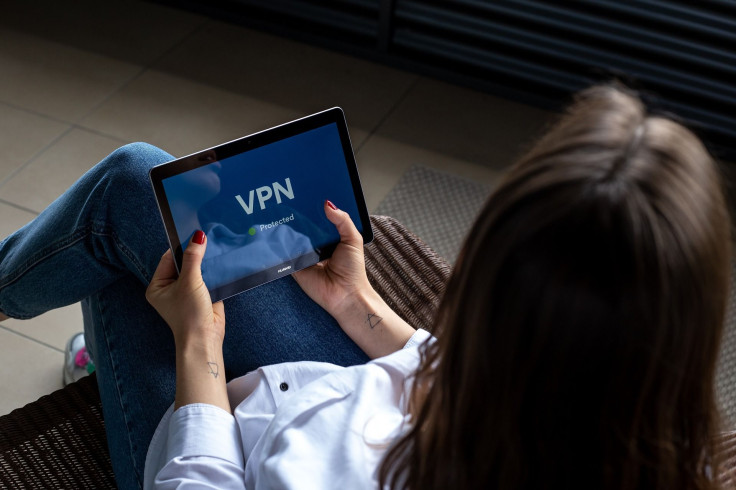VPN Update: 7 Things To Know About Virtual Private Networks in 2021

- Residential IP addresses may become a reality with VPNs
- Netflix blocks residential IPs during the latest crackdown on VPNs
- VPNs enhance privacy and may help to prevent bandwidth throttling by ISPs
According to Virtual Private Network (VPN) - Global Market Trajectory & Analytics report the VPN market is projected to reach well over $107.6 billion by 2027. The US market is estimated to be worth $12.1 billion, while China is forecasted to grow at a CAGR of 18.2%.The U.S. Global IP is expected to grow at a similar rate, with a projected 15.2% CAGR which is expected to be driven mostly by Canada, USA, Japan, China and Europe. Considering that we do virtually everything on the internet today, online security has become more important now than ever before. A virtual private network is perhaps one of the simplest ways to add an extra layer of protection in our online dealings.
That being said, choosing the best VPN services for your needs is not always an easy task as not all services are the same. What is not often discussed is that VPNs may soon make use of residential IP addresses. An IP address is the address servers use to route content back to the internet user, but it comes in two variants: datacenter or residential. Datacenter is essentially a network of servers, each with its own IP address, while residential is associated with a single owner and location.
Are Residential IPs Worth It?
One obvious challenge when signing up for a residential IP is that you only get one. While a Dallas IP may help to unblock Netflix, VPN providers might impose their own restrictions as well. TorGuard’s residential IPs don’t allow torrents and come with the following warning: "We can't guarantee these IP's will work for any services outside of streaming networks - they are not designed for anything other than streaming or general browsing."
Netflix cracking down on VPNs
A new issue sprung up earlier in August 2021 when Netflix began blocking residential IPs along with datacenter addresses, if they were associated with a VPN. This has reportedly limited Netflix access to scores of legitimate users. The company first started blocking users that tried to connect to its service via VPN or proxy around six years ago after copyright holders pressured Netflix to do so. If the company sticks to this approach and other platforms follow suit, it could become much more difficult to unblock streaming sites.
Mitigating content-based bandwidth-throttling
As the internet evolved to include more streaming content, ISPs have responded by making higher data usage and higher throughput “pay-as-you-use-more” services. Potential ISP throttling based on content type, source or destination which would give priority to business over personal usage, have been one of the reasons more people are embracing and using VPNs. Since VPNs provide more usage anonymity, ISPs are prevented from potentially tracking your activities and thereby limiting bandwidth and usage.
Enhancing Browsing Privacy
Some retail apps, search engines and social media platforms continuously collect and analyze the results of your search history. These apps and platforms keep track of a user’s browsing activities in order to provide targeted and monetized content. This is usually done through ads. Simply clearing the browsing history does not completely remove traces of these searches. The VPN helps by hiding the browser’s cached data and location from advertisers, preventing pesky targeted ads from cluttering a user’s browsing experience.
Greater demand for VPN than antivirus
Over the past eight years interest in VPNs has outgrown the demand for antivirus protection, according to Google trends. “Spikes for the demand in VPNs usually concur with cybercrime statistics or some important political decisions related to internet surveillance or privacy in general, “ Daniel Markuson, a digital privacy expert at NordVPN notes. He continues: “Virtual private networks help users to encrypt their traffic and browse with peace of mind, without third parties accessing their data. As people face the dangers or restrictions, they tend to value their privacy, security, and freedom more. That is why VPNs are becoming more of a mainstream product nowadays.”
Bypass restrictions on messaging apps
Some countries have restrictions on the use of certain messaging apps, banning their services. A VPN could bypass this constraint, allowing users to make use of the messaging app and may help to reduce the cost of communication while abroad.
VPNs have been around since 1996
When Microsoft first came up with the technology in the ‘90s, it was to help their employees work from home more safely. Afterwards, private networks were mostly used by businesses. The interest regular users had in VPNs only rose in 2013, when Edward Snowden revealed the existence of secret information-gathering programs. The result was that interest in private browsers, such as DuckDuckGo, essentially doubled overnight as people became more concerned about their internet privacy.
The Takeaway
As the coronavirus pandemic made a lot of people switch to working remotely, many companies are seeking to protect their data and employees from possible cyberattacks. According to Markuson the demand for VPN increased by 44% over the second half of March and remains 22% higher than pre-pandemic levels. With around 142-million VPN users in the United States alone, it would seem that virtual private networks are part of the new normal.
© Copyright IBTimes 2024. All rights reserved.











